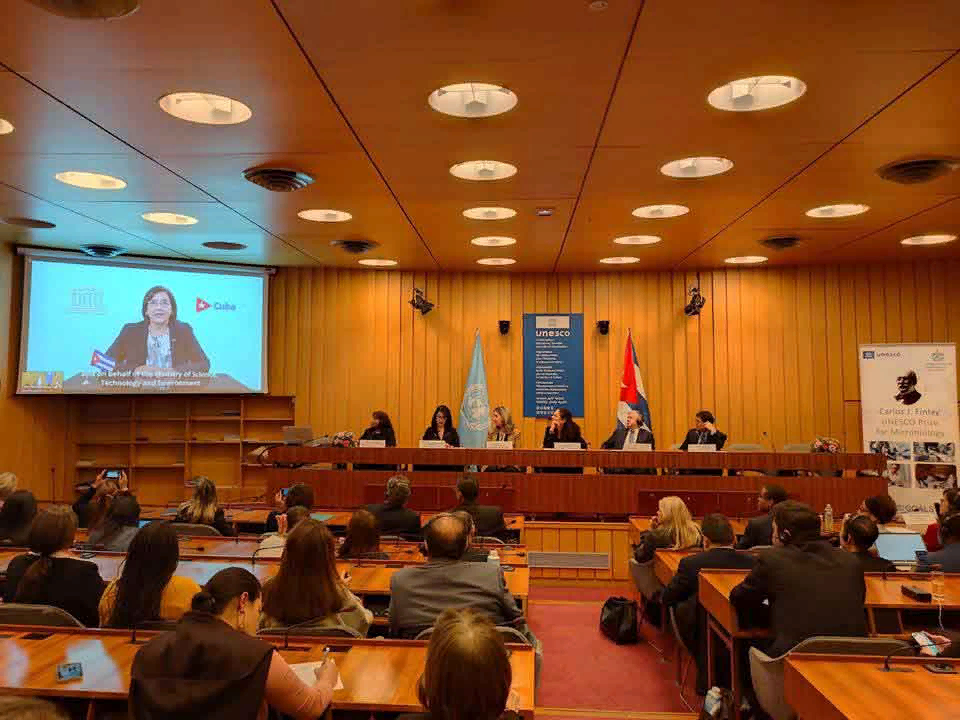Cuba advocated today at UNESCO for the promotion of science as a vehicle to promote peace and sustainable development, in the context of the delivery of the Carlos J. Finlay Prize for Microbiology.
At the award ceremony sponsored by the island in its 17th edition, which was won by the Uzbek researcher Dilfuza Egamberdieva, the Cuban Minister of Science, Technology and Environment, Elba Rosa Pérez, pointed out that the award reflects the will of her country to promote the development of science, technology and innovation.
Through a video message, Pérez also highlighted the relevance of cooperation, solidarity and scientific progress for the well-being of humanity.
In her speech, she addressed the role of microbiology, evidenced in the global battle against the Covid-19 pandemic, and highlighted the figure of Finlay (1833-1915), world-renowned for his discoveries on the transmission of yellow fever.
For her part, the Cuban ambassador to UNESCO, Yahima Esquivel, stated that despite the impact of unilateral coercive sanctions, particularly the US economic, commercial and financial blockade, the largest of the Antilles continues to support scientific development as a path to its sovereignty and sustainable development.
In the context of the 76th anniversary of Cuba’s entry into UNESCO, she expressed the island’s commitment to the organization in the search for peace and the promotion of sustainable development, with its values and principles and its multilateral nature.
According to Esquivel, the award was created more than four decades ago to encourage collaboration, research and the sharing of knowledge, in line with the work of Finlay, an epidemiologist who bequeathed the values of professionalism, dedication, perseverance, human sensitivity and ethics.
During the award ceremony to Egamberdieva, Ambassador Esquivel also highlighted that the Antillean nation presents its candidacy for the Executive Council of the organization in the period 2023-2027 at the 42nd General Conference of UNESCO.
One of the letters of introduction of the Caribbean country is its contribution to cooperation in favor of education as a fundamental human right, science as a function of the human being, full access to culture, protection of heritage, and fight for a new world order that is fair and inclusive in information and communication.


